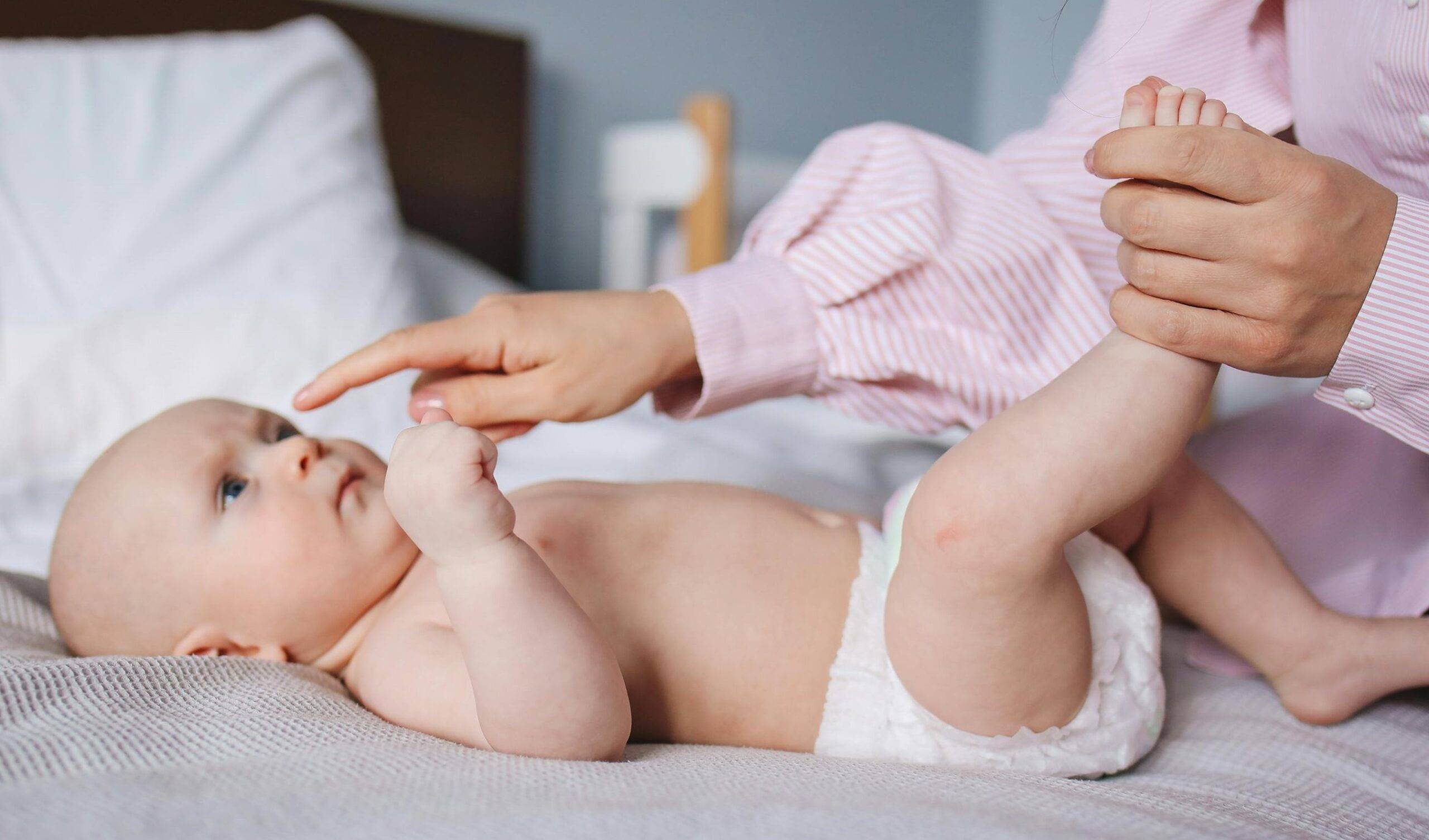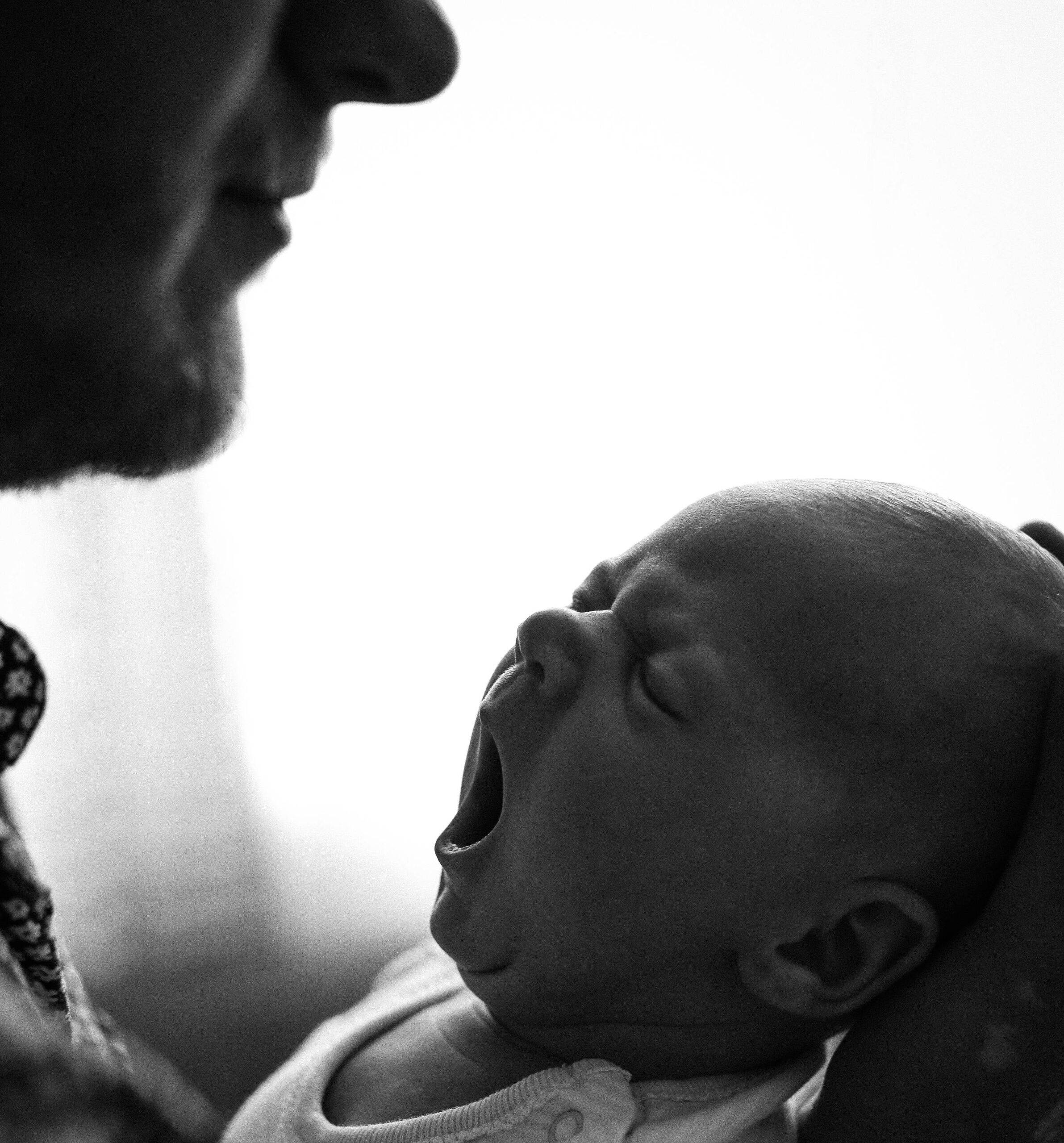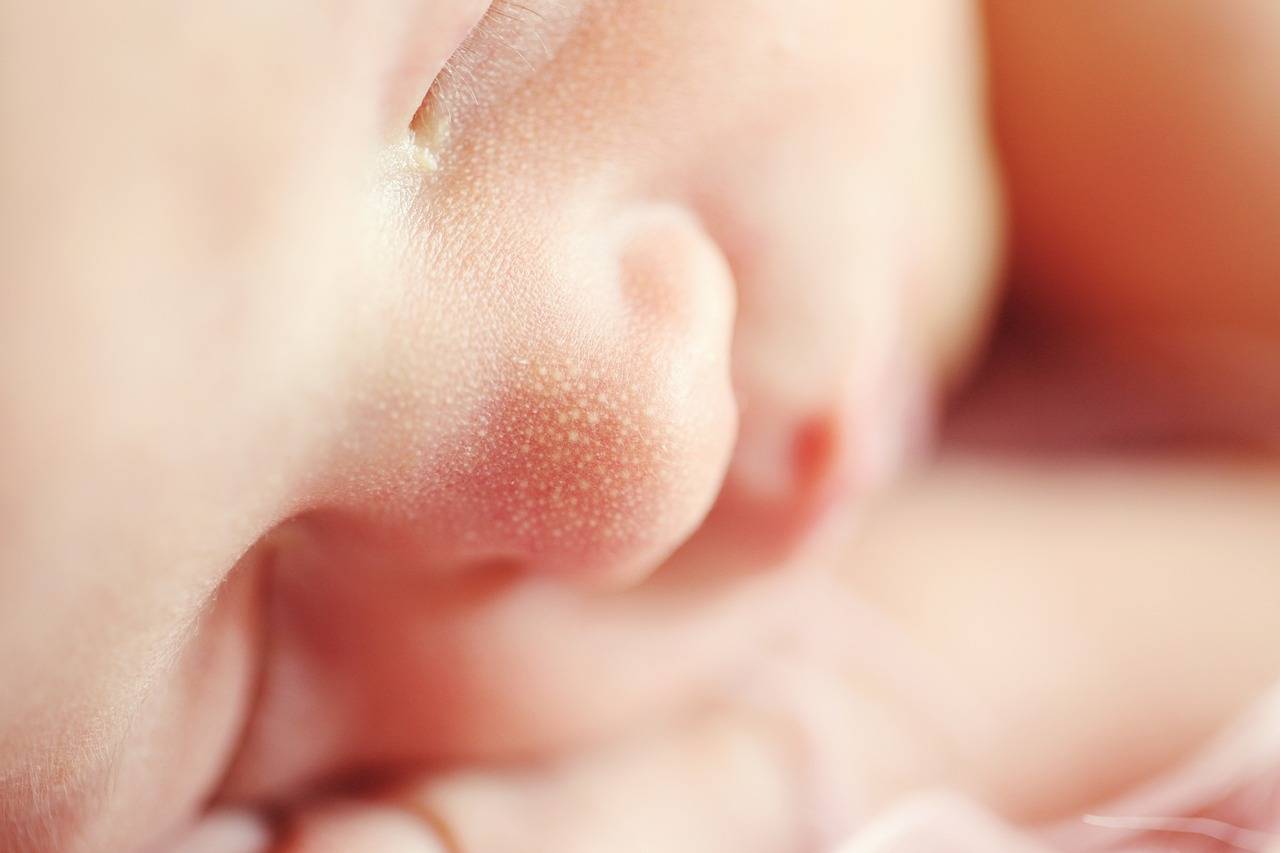It’s scary when your tiny newborn gets their first cold. Even though colds happen all the time, seeing your baby sick—especially under 3 months old—can feel very stressful. At this age, infants are fragile, and even a simple cold can feel like a big deal.

That’s why this guide is here for you.
We’ll walk you through how to spot cold symptoms in babies under 3 months, what you can safely do at home to help them feel better, and, most importantly—when to call the doctor. With knowledge and the right steps, you can feel more in control and keep your baby safe and comfortable.
Why Colds Are More Serious in Babies Under 3 Months
Newborns and very young babies aren’t just tiny versions of bigger kids—they’re still learning how to live in the world. Their bodies are delicate, and when they get a cold, it can affect them more than it would an older child or adult. Here’s why colds can be more challenging—and even dangerous—for babies under 3 months:
1. They Are Nose-Breathers
Young infants are what doctors call obligate nasal breathers—this means they mostly breathe through their noses. This is especially true when they’re feeding. So when their tiny noses get stuffy, even a little bit, it can make it hard for them to breathe, eat, and sleep.
2. Their Airways Are Very Small
Especially for babies under 3 months, their nose and breathing tubes are tiny. Just a small amount of mucus or swelling can make it hard for air to get through. This can lead to noisy breathing, trouble feeding, or poor sleep.
3. Their Immune System Is Still Growing
Newborns are still building their defenses against germs. Their immune system hasn’t learned how to fight off viruses like older children can. That means what starts as a mild cold could turn into something more serious, like bronchiolitis (an infection in the small airways of the lungs) or even pneumonia.
Due to these reasons, keep a close eye on your baby when they have a cold. If anything seems off or if symptoms get worse, don’t wait—call your pediatrician.
Recognizing Cold Symptoms in Babies Under 3 Months
Colds in newborns don’t always look the same as in older children—or adults. Because babies under 3 months are still so new to the world, even minor symptoms can affect them in big ways. Here are some common cold symptoms to look out for in very young infants:

1. Runny or Stuffy Nose
Your baby may have a runny nose with clear, yellow, or green mucus. A stuffy nose can also make it hard for them to breathe, especially while feeding.
2. Sneezing
Sneezing a lot doesn’t always mean something is wrong—but frequent sneezing is a common early sign of a cold.
3. Mild Cough
Babies might develop a dry or soft cough. It usually starts mild but may become more noticeable as the cold persists.
4. Trouble Feeding
Because babies breathe mostly through their nose, nasal congestion can make it hard for them to suck and swallow during feedings. If your baby struggles to eat or seems frustrated, this could be a clue.
5. Fussiness or Irritability
If your baby is more cranky, harder to soothe, or doesn’t seem like themselves, it could be because they’re not feeling well.
6. Low-Grade Fever
A mild fever may sometimes come with a cold. But remember—any fever of 100.4°F (38°C) or higher in a baby under 3 months is a medical emergency. Always call your pediatrician right away if your baby has a fever.
If your little one shows any of these signs, keep a close eye on their symptoms. Small changes can mean big things for young babies, so be watchful.
You can also read Omega Pediatrics’ Febrile Episodes in Children: A Comprehensive Exploration of Fever-Related Issues for more expert tips.
Providing Comfort and Care at Home: What You Can Safely Do
The good news is that most colds in babies will go away on their own. Still, when your baby is stuffy, fussy, or not feeding well, it’s hard not to worry. The goal is to keep them comfortable while their body fights off the virus. Here are some gentle, safe ways to help:
1. Nasal Suction
When your baby’s nose is full of mucus, they can’t breathe well—especially while feeding. Use a bulb syringe or a nasal aspirator (like the NoseFrida) to gently suck the mucus out. This can make a big difference in how well your baby eats and sleeps.
💡 Tip: Suction before feedings and naps to help your baby rest and eat better.
2. Saline Nasal Drops
Saline drops help loosen up thick, sticky mucus so it’s easier to suction out. Just add 1–2 drops into each nostril before using your bulb or aspirator. You can buy these drops at any pharmacy, or make your own by mixing 1/4 teaspoon of salt into 1 cup of warm, sterile water.
💡 Always use clean, sterile equipment, and don’t overdo suctioning—2–3 times a day is usually enough to avoid irritating their nose.
3. Use a Cool-Mist Humidifier
Dry air can make congestion worse. A cool-mist humidifier adds moisture to the air, helping to loosen mucus and soothe your baby’s nose and throat. Run it in your baby’s room, especially during naps and bedtime.
💡 Make sure to clean the humidifier daily to prevent mold and bacteria buildup.
4. Keep Baby Hydrated
Offer frequent feedings of breast milk or formula. Fluids help thin mucus and prevent dehydration. If your baby is too congested to feed well, try suctioning their nose before feedings.
5. Follow Safe Sleep Positioning
When your baby has a cold, it’s tempting to prop them up to help with breathing—but always follow safe sleep rules:
- Lay your baby flat on their back to sleep.
- Use a firm, flat mattress.
- No pillows, wedges, or blankets in the crib.
If your pediatrician recommends elevating your baby slightly for breathing, you can place a rolled towel under the mattress—not directly under your baby.
6. Avoid Cold and Cough Medicines
Do not give over-the-counter cold or cough medicines to babies. These medications are not safe for children under 2 and can cause dangerous side effects like slowed breathing or heart rate. Even if the label says “infant,” always check with your pediatrician before giving any medicine to a baby under 3 months old.
When to Seek Immediate Medical Help (Red Flags)
While most colds are mild, certain symptoms in babies under 3 months require immediate medical attention:
1. Fever
A rectal temperature of 100.4°F (38°C) or higher in a baby under 3 months is a medical emergency. Contact your pediatrician or go to the emergency room right away.
2. Difficulty Breathing
Particularly for babies under 3 months, signs include
- Rapid breathing (more than 60 breaths per minute)
- Grunting or wheezing sounds
- Nostrils flaring
- Chest retractions (skin pulling in around ribs or neck)
- Blue or gray lips, tongue, or skin
3. Poor Feeding
If your baby is refusing to eat or is taking in much less than usual, they may be at risk for dehydration. Signs of dehydration include:
- Fewer wet diapers (less than 3–4 in 24 hours)
- Dry mouth or lips
- No tears when crying
- Sunken soft spot on the head
4. Lethargy
If your baby is unusually sleepy, difficult to wake, or less responsive than normal, this could indicate a serious illness. Seek medical attention promptly.
5. Persistent or Worsening Cough
A cough that is severe, persistent, or getting worse may be a sign of a more serious infection like RSV or pneumonia. Contact your pediatrician for evaluation.
Always trust your instincts. If something doesn’t seem right with your baby, it’s better to be cautious and consult your healthcare provider.
Keep Your Baby (Under 3 Months) Safe Through Their First Cold

Caring for a baby under 3 months old with a cold isn’t easy—but knowing the signs and what to do can help you feel more confident and calm. Your love, attention, and quick action can make a big difference in how your little one recovers.
Key Takeaways:
- Use gentle home remedies like nasal suction, saline drops, and a cool-mist humidifier to help your baby breathe easier.
- Keep your baby hydrated with frequent feedings of breast milk or formula.
- Follow safe sleep guidelines—always place your baby on their back to sleep on a firm, flat surface with no loose bedding.
- Skip the cold medicine—over-the-counter cold and cough medications are not safe for young babies.
- Watch for red flags like fever, fast or noisy breathing, trouble feeding, unusual sleepiness, and a worsening cough.
- Don’t wait to get help—any fever or breathing problem in a baby under 3 months is a reason to call your pediatrician right away.
And most of all—trust your instincts, especially for your baby under 3 months. If something doesn’t feel right, reach out for help. Pediatricians are there to support you.
For expert advice on baby care, illness signs, and more tips for new parents, visit Omega Pediatrics. We have these articles:
How to Handle Newborn Baby First Cold: 6 Ways to Provide Comfort and Care and 11 Newborn Health Concerns: The Ultimate Guide to Keeping Newborn Baby Safe and Healthy



